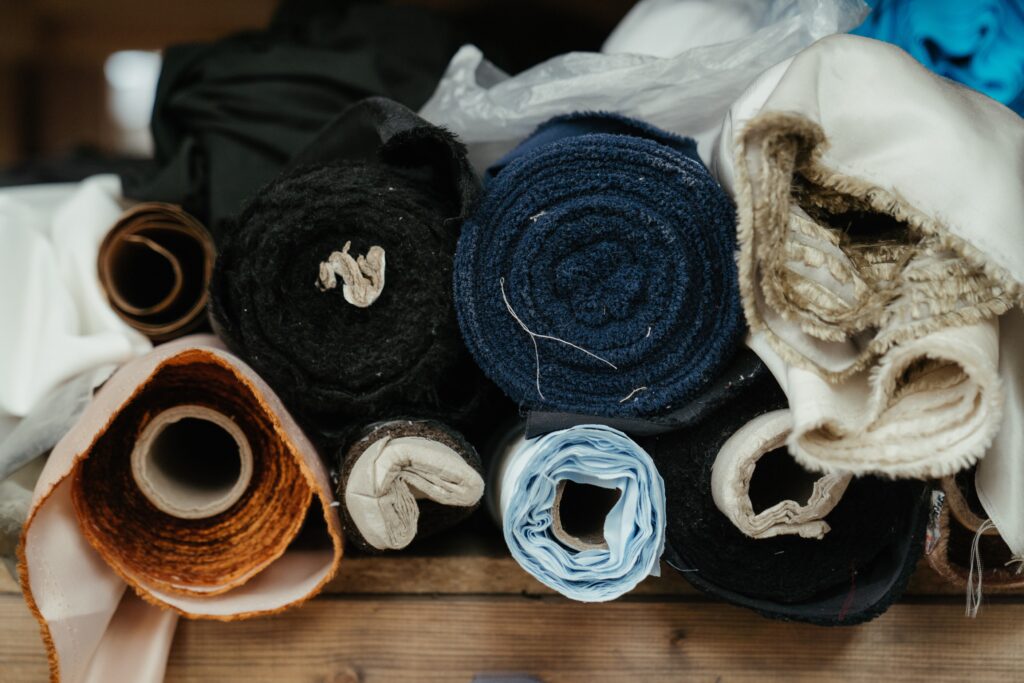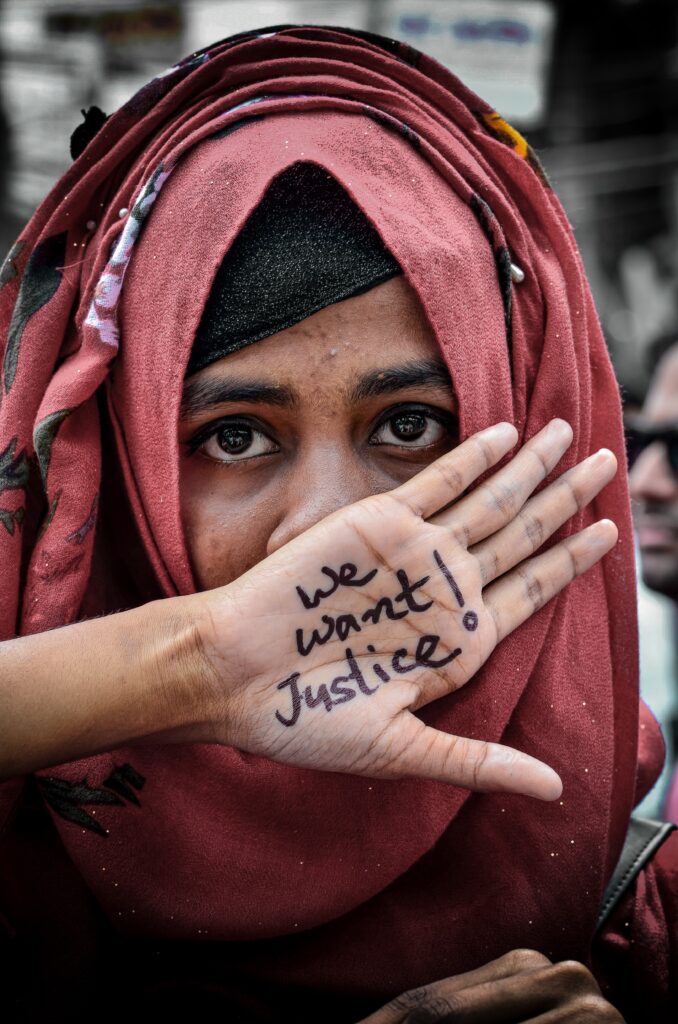Hello everybody! In the context of my upcoming video about the impact of fast fashion, I want to dedicate specific posts to some of the aspects of the issue that I know already won’t fit into the video (a gurl only has so many hours to edit lol) One of the issues that I want to address is the issue of jobs and employment within the fast fashion industry. I often hear the argument that although fast fashion is awful, the industry does keep people employed, so at least that’s something right? And if we all boycott fast fashion, they won’t the people previously employed in sweatshops then be complete without jobs?
Fast facts about fast fashion workers:
- There are roughly 40 million garment workers in the world today
- Only 2% of whom are paid a livable wage
- They are some of the lowest-paid workers in the world
- 85% of garment workers are women
- Fast fashion workers are generally not allowed to form unions or discuss salary

It is not likely that the fast fashion industry will shut down overnight, rather it will be a slow transition away from an outdated business model – just like in animal ag. When we stop buying clothes from brands who exploit their workers, we will likely have to buy less, but better, clothes from ethical brands instead – who pay fair wages to workers. It is a slow transition that will shift jobs over years. But it is important to remember that fast fashion isn’t giving people jobs as much as they are keeping slaves.
Most sweatshop workers do not earn a liveable salary in the first place, so excusing your consumption of fast fashion clothes by proclaiming your creating jobs simply only holds the tiniest dash of considerable truth. they are not allowed to form unions, and right now, due to covid, many fast-fashion retailers are “postponing” the payment of their workers, and have been doing so since March. They aren’t being paid now, but they can’t leave either. If fast fashion is slowly out-phased, one can hope that more ethical businesses will open up instead – OR that new socio-economic structures will allow for more self-reliable communities
Here are some actions that will actually benefit garment workers:
- Boycott the big fast fashion brands, and communicate to the brands that you want them to change
- Support ethical and sustainable brands that build up communities rather than exploit them
- Use what you already own, and repair your clothes when it breaks
- Support causes and charities that fight for garment workers’ rights – like War on Warrant or the Clean Clothes campaign
- Acknowledge your role as a consumer, and talk to people around you about fast fashion
- Shop second hand, vintage or pre-loved
- Arrange clothing swaps with friends or family to avoid buying new
- Engage in online campaigns like #PayUp to put pressure on brands to pay their workers

How much are garment workers paid?
- The average wage for garment workers in Bangladesh is $25 a month, while the average living costs are far more, workers are not paid enough to provide shelter, education, and food for their families
- To put it into perspective, the average factory worker in Australia is paid $25.7 an hour
- In four days a fast fashion CEO earns a garment worker’s lifetime pay
- Workers in some factories work up to 140 hours of overtime each month, working until 2 am, they are not additionally compensated for overtime or provided with healthcare
- 60% of workers were unable to meet production targets – in one factory the target for each worker was to produce 20 ladies shirts every hour. Learn more via War on Warrant.
When it comes to the fashion industry, there are lots of aspects to consider, but luckily there is more than one solution as well. If you want to know more about the impact of some of the aspect the fashion, check out my video about cotton and conventional vs organic cotton production





I do agree with all of the points that you make regarding the topic of fast fashion, but there is only so much I can do as a consumer.
In my own country, a small landlock country in the middle of the Balkan, garment workers have no rights and the very few that they have are being lost with every new government. So while we have a union and that union tries to bring changes, considering how corrupt and useless the system is, it doesn’t really seem like anything will change significantly in the years to come. The biggest clusters of covid are of garment workers, because they are working in tight and close quarters. There is no possibility for social distancing in a factory and they don’t actually get the opportunity to quarantine themselves, because if one is positive than all will probably have to isolate themselves and that will obviously have an impact of the profits of the company. A few months back the employers wanted the workers to actually either work longer or work without a break, because they don’t actually work “effectively” 8 hours a day. I mean they obviously can’t reach their (impossible) quotas, so the solution is to make them work longer and harder. My mother is not a garment worker, but she did work in several factories throughout her life and seeing her work and not be appreciated is my main motivation for wanting big changes. But realistically I also know that I as an individual can’t really do much to change the system.
I try to do stuff within my means. I am thinking about everything, from the way I buy clothes to the way I clean my home to the way I shop and cook. I am doing my best and while my best is okay for me, there is this enormous pressure put on me as a consumer to change things.
Take for example the point of clothes, considering that is what you wrote about. For most of my childhood I wore hand me downs and we only got clothes on special occasions. Yeah there may have been occasions when I got something that I didn’t necessarily wear more than twice, but I would try and give it to someone who wants it. I mean, we have all felt the societal pressure to look a certain way i.e. for proms and other celebrations. But as an adult I find it ridiculous, on our salaries, to have pay 40 euros for an ethically made pair of panties. It is ridiculous, because I am sure I will be needing more than one. And I don’t plan on ever buying my underwear secondhand. Then there is the problem of choosing. All of these “ethical” companies are popping left and right and well, as we have seen with Everlane, which every influenser and their mother endorsed it, it was a load of crap. It is no better than other fast fashion brands. And just because you’re an ambassador of something, does it make it ethical? I mean influensers endorse products, because they get paid for it and not necessarily because they like it. I mean does anyone go personally to those factories to check the conditions? Just because something has a certificate it doesn’t make it good. Certificates can be bought, because as I have seen, everything and everyone has a price. And conditions can be faked. Workers can be pressured to say things that they don’t mean. And honestly ethical fashion is bland and dull and it looks the same. I like flowers and colors and I only live once and I want to be happy and joyfull while wearing something. I mean prisoners have more color in their overalls and influensers look like they are either a part of the same cult or are living in the same asylum.
So where do we go from here? Ethical fashion is expensive and it can he bland. I guess the problem lies with the companies themselves, because they like to play it safe and because they are still riding the wave of the minimalism movement. Then there is second hand, which is not accessible to everyone. I live in the EU currently and even here, in the capital of this small EU country is hard to find specific things to wear. Like work wear or stuff that actually fit properly. If we were all influensers than maybe we could have been ok with wearing something loud. But in my profession there are expectations that need to be met. And second hand shopping doesn’t really meet them. And we come back to fast fashion. Which you already wrote the downsides of. So what now? What do we do? What do we wear? The options are limited and basically every garment out there is fast fashion. If i buy something from a small boutique and that person didn’t really create that themselves, that is again fast fashion. Because she bought it from a retailer, who ordered it from a company, who has a contract with a factory. Which is how people from two different parts of Europe can have the same exact piece of clothing bought at two very different locations.
What I want is more realistic content that it not meant just for privileged people. Maybe give realistic options. Because we don’t have the same opportunities as you.
I really like you. You’re one of the very few you tubers I can actually stand to watch. And I am very picky and choosy who I listen to so I am sorry to say this, but you guys are the problem. Not you you, but you as in Denmark, as in other privileged countries. You are the ones demanding and you are the ones buying. Not to say that we don’t have people who overconsume, but on our salaries it’s more about needs than wants. And yet we get preached to all day every day. What we have to change and what we have to do to save the planet. Like you guys are the only ones caring and like we are aliens when in reality it is our planet as well. I mean big companies who come from rich countries are the ones polluting and we, people in those small polluted countries have to live with the consequences of that pollution. And I am an M.D. so I do know what I am talking about. Then I have to listen to someone preaching to me how I am not doing enough. I mean I am all for education. But when educating becomes preaching I draw the line.
So please do change some of your content. We are all doing our best. We are all part of this planet. We all want to save it for future generations, so don’t go and make it like you are saving it and we are destroying it by doing stuff like buying fast fashion. You don’t know our circumstances. And do take into consideration other countries and not just countries like the USA, UK or western Europe. There is a whole world outside of your bubble.
while there a lot of points here, forgive for not being able to thoroughly comment on all of them. I would however like to address the last bits. First of all, if this comes off as preachy, that is not my intention, this is a preview of a video that will be out later, that hopefully will put this into some more context. But I try my best to include the talk about privilege in my content, it is not mentioned in this specific post, but if you have watched my videos, you’ll see that this aspect is represented as well. I know there is a world outside of Europe, but since I belong to a certain demographic of over-consumers, these are the people I am primarily addressing, because they are the ones that need to change, people like me, with my privilege. I CONSTANTLY mentioned that people with no other options are not the problem, hyper-consumers are, and I hope that there will some understanding in the notion that is exceptionally difficult to always include everyone, and everything, in a post like this. So, the bottom line: I am not preaching and shaming people with no other options than buying fast fashion, and I spreading knowledge about this industry to people who choose to buy it because it is easy and available when they could be making other choices. It’s a bubble alright, but a lot of wrong is taking place in that bubble.
I have religiously watched you for over 2 years now and that’s why I felt the need to tell you this. Because in my own way I have a lot of respect for you. I mean you’re not whiny and you actually do research, which shows that you’re committed to education.
I do apologize if I came out too strong. It was not my intention to offend you or attack you. But it does get frustrating, because some content comes of as preachy whether you mean it like that or not. And I do understand that you constantly talk about different circumstances, but considering that some of your viewers come from different parts of Europe maybe you can adapt some of the content for us as well.
Comment: Hello ma’am I just finished reading your current blog on FAST FASHION & SWEATSHOPS. You really explain it pretty well in detail how fast fashion companies treat their garment workers. It’s very devastating to know that people know these big brands names but, people hardly think about the actual hero’s who works day and night, despite doing so they aren’t paid a fair wage. It’s high time we do as much it’s possible for us to do to boycott fast fashion. Thank youu so much Gittemary ma’am for creating such a blog. 🌼💖
~Suneha Paul
Thank you so much Suneha, I really appreciate it ❤